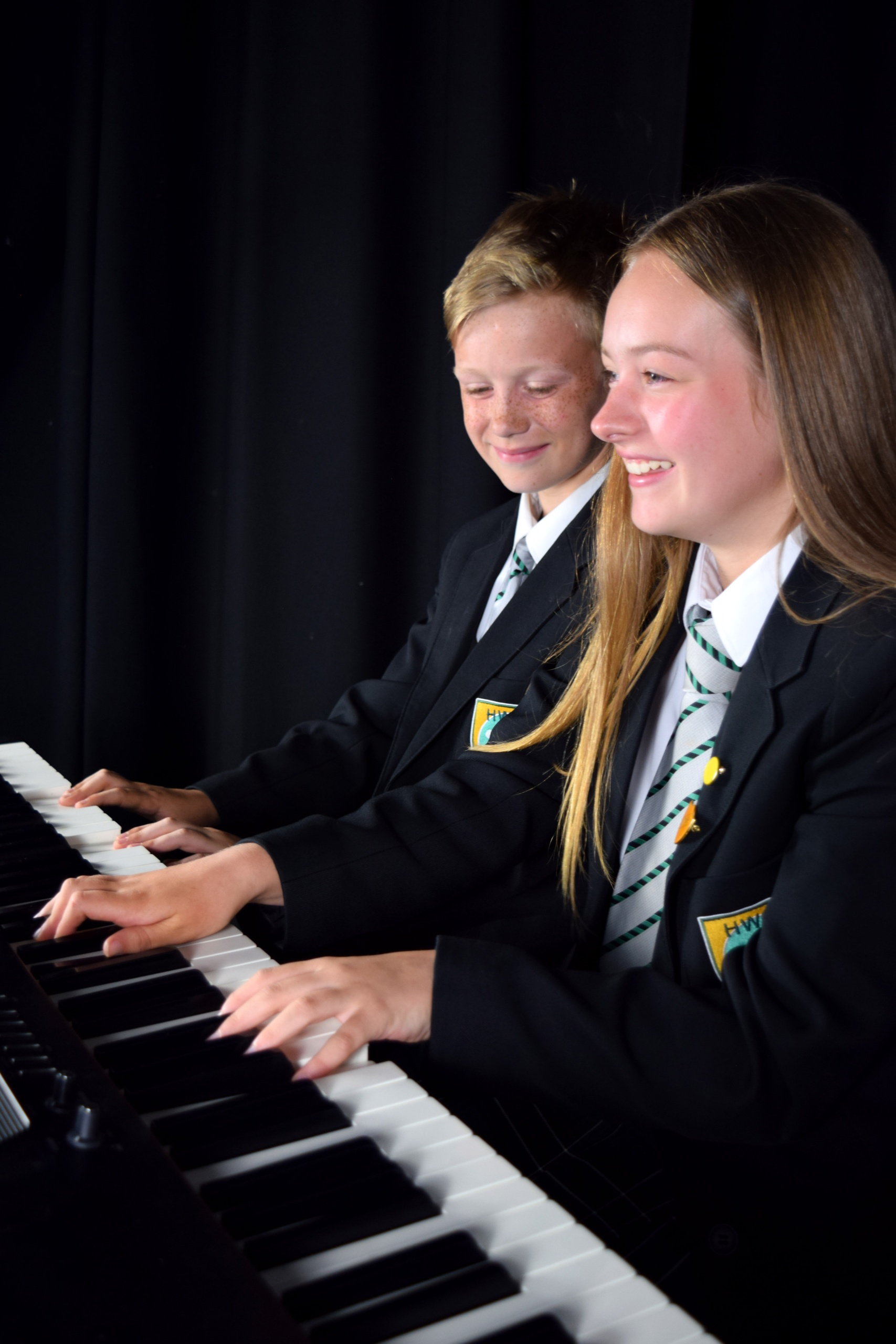Welcome to the Music Department
Students take part in a range of integrated activities and are encouraged to improve their performing, composing and listening skills while developing knowledge of musical styles, traditions and cultures.
If your child would like to have instrumental lessons, please click here.

Curriculum Content
Key Stage 3
Year 7
In year 7 students have one lesson of music a week, they look at different styles of music and production of music:
Year 8
In year 8, students continue to develop their rehearsal, compositional and performance skills:
Year 9
Students in Year 9 will undertake a number of assignments designed to broaden their musical knowledge and ability whilst also introducing them to the requirements of the BTEC qualification. These assignments include:

Key Stage 4
Year 10 & 11
Students in Years 10 & 11 will study the new BTEC Tech Award in Music Practice.
Course Structure
BTEC Level 1 / 2 Tech Award in Music Practice
Year 10
Component 1: Exploring Music Products and Styles (30% of final grade)
Learners will explore the techniques used in the creation of different musical products and investigate the key features of different musical styles. Grades can be awarded at levels 1 and 2. Work is assessed by your teacher and grades are moderated by the exam board.
Year 11
Component 2: Music Skills Development (30% of final grade)
Learners will have the opportunity to develop two musical disciplines through engagement in practical tasks, while documenting their progress and planning for further improvement. Grades can be awarded at levels 1 and 2. Work is assessed by your teacher and grades are moderated by the exam board.
Component 3: Responding to a Music Brief (40% final grade)
Learners will be given the opportunity to develop and present music in response to a given music brief. This component will allow students to work to their strengths and interests and apply the skills that they have learned throughout their course in a practical way. They will focus on a particular area of the music sector that excites and appeals to them and respond to a music brief as a composer, performer or producer. Grades can be awarded at levels 1 and 2. Work is assessed by the exam board.
